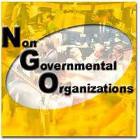The Youth Bridge Foundation (YBF), a non-governmental organization, has called for the decoupling of the Ministry of Youth from Sports, in order to allow it to prioritize youth development issues.
Mr Douglas Quartey, Programmes Manager at YBF, said the decoupling would also allow the Ministry to effectively play its oversight role in ensuring the development of capacity and to co-ordinate efforts in youth development.
He made the call at the opening of a two-day National Forum on the 2015 Budget-Youth Sensitivity Analysis, organized by his outfit, to interrogate how youth-sensitive the budget was, in terms of allocation and policy focus, and to create awareness on those issues.
Presenting the findings of a Youth sensitivity analysis of budgets from 2011 to 2015, Mr. Quartey said although the analysis showed that government was committed to youth development through appropriate policies and interventions, budgetary allocations for the implementation of such policies had been rather low.
An analysis of the President's annual State of the Nation Address for the period 2011 to 2015 had shown the introduction and pursuance of various interventions for youth development in the country.
These include social protection interventions like the Youth Empowerment Model, the National Youth Employment Programme and launch of the Youth Enterprise Support (YES), the Youth Employment Agency Bill, and the Youth in Agriculture programme among others.
However, the analysis of the budget allocations for the period showed that allocations to the Ministry of Youth and Sports continued to decline in percentage points from 0.58 per cent in 2011 to 0.08 in 2015.
Mr. Quartey said the study had found weak sector linkages as far as Youth- oriented initiatives were concerned, while measurement of initiatives undertaken was also poor.
Jobs creation avenues were not responsive to the needs of tertiary graduates, and there was no special government intervention and allocation to ameliorate the effects of economic challenges, such as the current power crisis, on the youth.
He, therefore, recommended the publishing of an annual report by the ministry that would give detailed information on youth development interventions, as well as those undertaken by other sector ministries, such as Education, Health, Agriculture, Science and Technology.
Other sectors, such as the Parliamentary Select Committee on Government Assurance and the Public Accounts Committee (PAC) should also be strengthened to carry out their duties, and implement PAC recommendations.
Mr Seth Oteng, Executive Director of YBF, said the evaluation of the budget for its youth sensitivity was the first of its kind done, and pledged the Foundation's commitment to work with the Ministry of Youth and Sports, Parliament and civil society, in defining a road map for Ghana in relation to demographic trends and development.
"National budgets have to be monitored to ensure allocations translate into actual disbursements and government held accountable for their social contract with Ghanaian youth," he stated.
Mr. Ignacio Burrull, Head of Co-operation of the European Union Delegation to Ghana, disclosed that the EU had provided a grant of GH¢39, 988.00 to the YBF, to help facilitate engagement between the youth and the government, a venture which was important with the existence of a National Youth Policy, and the establishment of the National Youth Authority.
"This funding is a manifestation of our commitment to the cause of youth globally and the need for budget accountability and transparency in governance," he noted.
He explained that in line with this commitment, the European Commission, in partnership with the United Nations, was organizing a public event dubbed: "Our World, Our Dignity, Our Future-the Post 2015 Agenda and the Role of the Youth,” scheduled to take place in Brussels on May 27.
Mr Ban Ki-Moon, UN Secretary-General, would deliver the keynote address.
Click to view details



Regional News of Friday, 15 May 2015
Source: GNA
Decouple Ministry of Youth from Sports - YBF

Opinions















